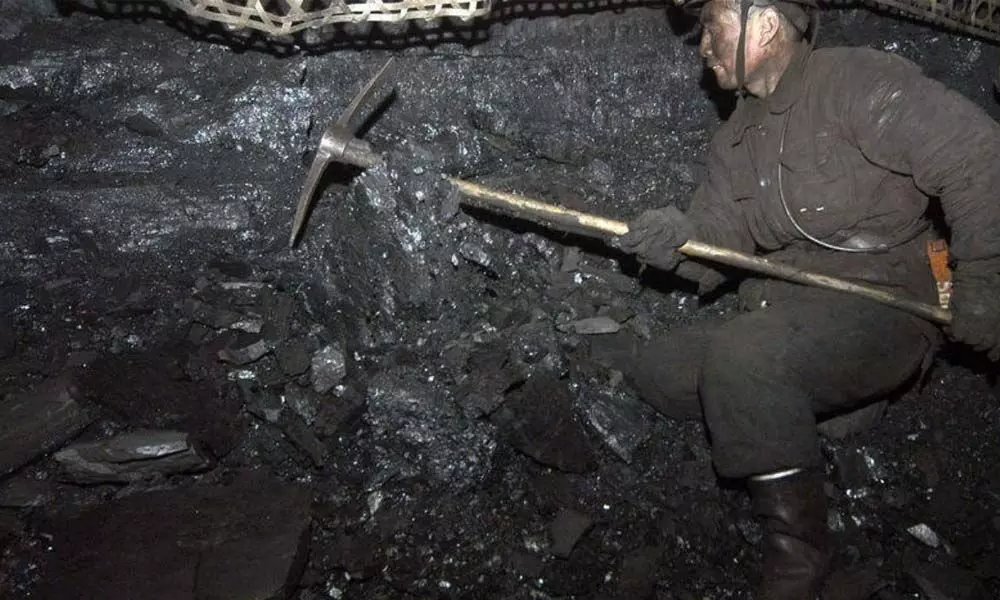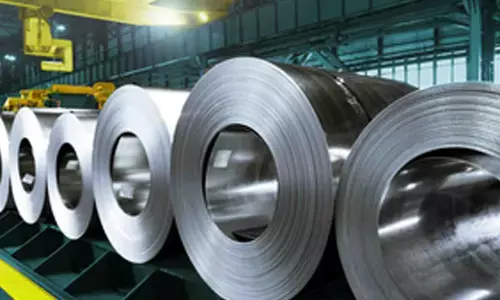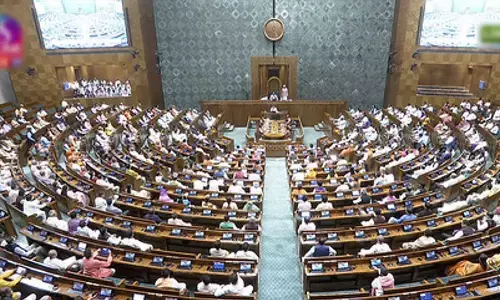Global warming led to power crisis

Global warming led to power crisis
The immediate cause of the present power crisis is shortage of coal
The immediate cause of the present power crisis is shortage of coal. This shortage, in turn, is due to global warming. It is necessary to dispose of certain alleged causes of the present crisis before proceeding further. One alleged cause is that the economy is picking up speed after the Covid pandemic leading to increase in demand for electricity. This is not acceptable because the production of coal in April-September 2020-21 is 11 per cent more than the production in April-September 2019. In this same period the GDP is scarcely equal to that in 2019. Thus, there is higher production of coal for the same GDP.
The second alleged cause is that the restrictions placed by China on the imports of coal from Australia has created a demand for coal produced by other countries leading to an increase in the international price of coal. This is not acceptable because the demand and price of Australian coal has also increased in the recent period. The sale of coal by Australia in the world markets has not declined due to the restrictions placed by China. The supply of coal in the international market is unaffected by China's restriction.
The third alleged cause is that less investment has been made in coal mining in the recent past due to greater focus on solar and wind power. This has led to the coal crisis. This is not acceptable because the investment that would have been made in coal and oil would have been made in wind and solar energy leading to an equivalent increase in the availability of energy. Hence, these are not the cause of the present crisis.
The true cause of the present crisis is reduced production of electricity along with increase in demand – both due to global warming. The production of electricity has been affected for three reasons: One, a number of coal mines across the world including those in India, China and Australia have been flooded leading to less production at the global level and an increase in price; Two, a number of energy-producing areas such as Louisiana and Texas in the United States have faced hurricanes leading to less production of oil; Three, dry climate in China has led to less production of hydropower. The wind speed has also been less leading to less production of wind power. The production of energy has been affected at a global level for these three reasons.
The consumption of energy, on the other hand, has increased. Europe has faced a long winter last year leading to higher demand for oil for heating purposes. European countries have depleted their stocks of oil in the last winter. The coming winter is also expected to be long. These countries are wanting to rebuild their stocks leading to higher demand for oil in the global market. Thus, global warming has led to less production of coal and electricity along with higher consumption of oil leading to an increase in the price of energy and to the present crisis. This crisis is reflected especially in the increase of price of natural gas in Europe. Natural gas is the preferred source of energy for heating because the distribution systems are in place and it is less polluting. The price of natural gas when reckoned equivalent to crude oil is hovering around US Dollar 230 per barrel against the prevailing price of crude oil of US Dollar 86 per barrel.
It must be noted that the price of the three sources of energy —oil, coal and natural gas — are interconnected with one another because often the raw materials are switchable. An oil-based electricity plant can be switched on and a coal-based plant can be switched off if the price of oil is less and coal is more. This happens just as shopkeepers increase and reduce the prices of their goods in tandem with the availability in the market.
The main raw material used for the generation of electricity in India is coal. About 90 per cent of our coal is obtained from domestic sources while 10 per cent is obtained from imports. Few thermal power plants are entirely dependent on imported coal. The price of electricity produced by these plants has increased along with the increase in the price of imported coal. The electricity boards have refused to buy this expensive electricity and these plants have shut down. In the result, the production of electricity has been affected and a crisis has been created. The small reduction in electricity generation due to closure of import-based plants has led to a large crisis just as a small increase in the temperature of the patient from 104 degrees to 105 degrees causes panic.
Such crises are likely to come with increased frequency in the coming future. Our special problem is that we are heavily import-dependent for energy. We import 85 per cent of oil and 10 per cent of coal. The global price of these raw materials keeps moving up and down. The price of petrol, diesel, natural gas and electricity in the country goes up and down in tandem. However, the sale price of electricity is fixed by our Electricity Regulatory Commissions on a long-term basis. Thus, there arises a mismatch between the short-term cost of production and the long-term price of sale of electricity such as the one we are seeing at present.
The solution requires action at two levels. First, we will have to reduce our consumption of energy to reduce dependence on imports and insulate our economy from the changes in the global price of oil and coal. This requires an increase in the price of all sources of energy including electricity. Second, we will have to peg the price of sale of electricity to the price of the raw materials. The price of petrol and diesel are changed on daily basis in keeping with the global price. The price of electricity in the country is about Rs 6 to 10 per unit. It has been fixed on a long-term basis. The price cannot be increased frequently as the price of raw materials goes up and down. Therefore, we must change the price of electricity on monthly basis, if not daily.
It must be noted that we are not affected by the change in global price of coal so much because the price of coal in the country is fixed by the public sector Coal India Limited. Thus, at present, the domestic price is stable while the international price is rising but we are facing a crisis, nevertheless.
(The author is former Professor of Economics at IIM, Bengaluru)
(The opinions expressed in this column are those of the writer. The facts and opinions expressed here do not reflect the views of The Hans India)
















